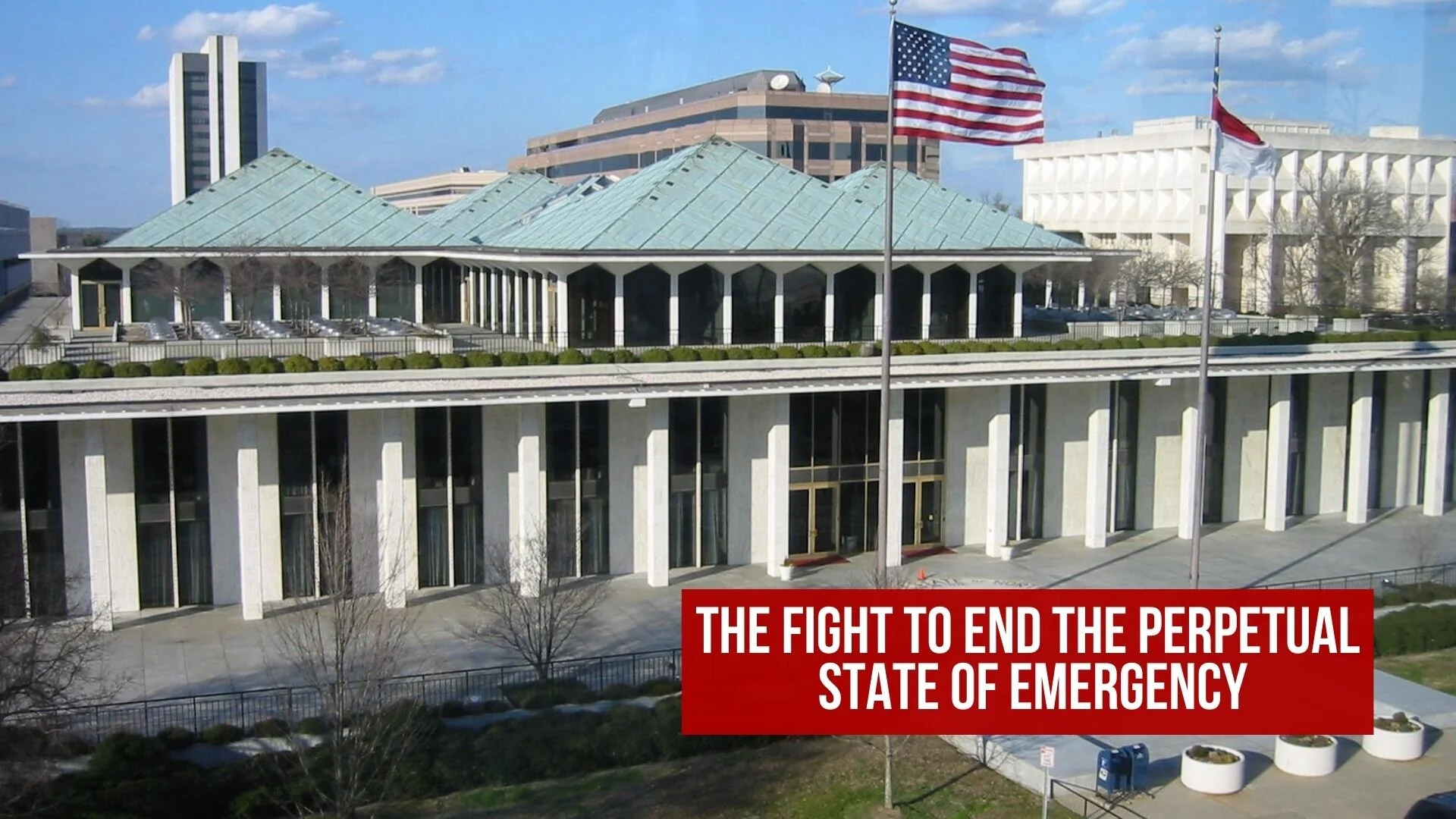The fight to end the perpetual state of emergency
On March 10, 2020 Governor Roy Cooper declared a State of Emergency for North Carolina due to the COVID-19 pandemic, and on March 17, 2020, he closed schools, restaurants, and bars for in-person dining. The NCHSAA also suspended school sports.
“The emergency authority from the governor comes from the general assembly and it requires the acquiesces of the state council. Which is all of the executives elected by the people of North Carolina. Administratively the governor has enough latitude to do a lot of the things he’s doing, but when you get to the year mark, I’m not so sure its an emergency when everyone has conformed their behaviors to it. This is merely my personal opinion,” said Marion Warren former director of the N.C. Administrative Office of the Courts (NCAOC)
Governor Roy Cooper asked for the Council of State to approve his first shutdown order in March 2020, but did not wait for approval before moving forward with the executive orders.
“This is not a Republican or Democrat issue," said House Majority Leader John Bell (R-Wayne). "We can all agree that COVID-19 has required emergency action. However, the current law granting these emergency powers was simply not written with today’s challenges in mind.”
Rep. Keith Kidwell (R-Beaufort), Rep. Bell, House Rules Chairman Destin Hall (R-Caldwell), and Rep. Tim Moffitt (R-Henderson) announced Emergency Powers Accountability Act (HB 264), which would prevent unilateral decision making under a state of emergency after 30 days. The Emergency Powers Accountability Act would require the Governor to seek the concurrence of the Council of State when issuing a statewide declaration of emergency beyond 30 days.
“Unfortunately, the Governor has chosen to disregard the statuary requirement that mandates him to consult with the Council of State,” said Rep. Kidwell. “This has allowed him to unilaterally shut down businesses, close schools, and severely limit the lives of North Carolinians through his executive orders. Clearly, this is not how a representative Republic works.”
Vaccination distribution began early January of 2021, and the Governor has repeated his successes in getting the vaccine into the arms of North Carolinians, yet the state of emergency remains.


